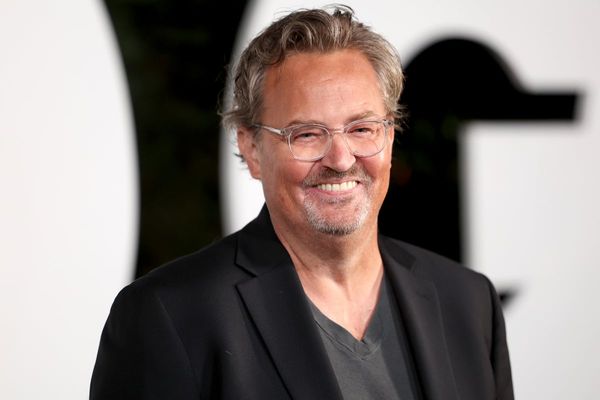
Borussia Dortmund have an opportunity to take advantage of Bayern Munich’s problems and become German champions for the first time since 2012. The main reason they are is Jude Bellingham: the most fascinating player in the league.
Bellingham is a complete midfielder. He can dribble, pass, shoot and has the urge to score. His first contact with the ball is exceptional, most recently seen in his goal to make it 1-0 against Eintracht Frankfurt. He is physical and fearless, holds his ground in challenges and wins the ball. He shows character on the pitch, seeking out battles with strong opponents and takes responsibility in important games, for club and country.
His skills are on display in every game, including the 4-2 defeat in Munich at the beginning of April. I didn’t understand the criticism that came his way afterwards. If he is not playing, as was the case for the defeat in the German Cup quarter-final at Leipzig, the team has much less energy. Dortmund cannot afford to be without him.
Bellingham sparks imagination because he could become world-class one day. He is only 19, but very developed. At 16, he proved himself in the Championship in England and he is a consistent performer in the German top flight in his third season. Gareth Southgate counts on him and at the World Cup in Qatar he was in England’s starting XI for every game.
It is the mark of outstanding players that they can showcase their talent at a young age and do so effortlessly. I can’t think of a world‑class player in the past 30 years who didn’t stand out at 20. If you assert yourself at that level at such a young age, you’re setting yourself up for a bright future. Bellingham has what it takes to take on a role in any top team in Europe over the next 10 or 15 years. No wonder Real Madrid and other top clubs are interested.
Bellingham has already established himself but for him to fulfil his potential he needs to progress even further. I see one danger in that he has not yet defined his role. He is yet to carve out a style that people identify with him. It is not yet clear how he understands his position.

At Dortmund he sometimes takes on too many tasks and has to cover too much space, leading to him running out of energy to do the essentials. He can struggle to have clarity when in possession and to be strategic when opponents have the ball. At the end of the 3-3 draw against Stuttgart, for example, he was all the way up front despite his team being in the lead while some of his teammates tried to defend their own penalty area. Stuttgart’s equaliser came at the last second.
Centre-backs or strikers, such as Erling Haaland or Karim Benzema, have it a little easier in this respect. Their task is clearer. Bellingham is a midfielder, which requires interpretation and a deep understanding of who has what strengths and how they can contribute with them. The centre of this team game is where the complexity is the greatest. The three players at No 6, No 8 and No 10 have to find a division of labour that balances defence and attack. Casemiro, Luka Modric and Toni Kroos have done this perfectly for many, many years in Madrid.
World-class players are characterised by the fact that their contribution to the game is basically always the same. Kroos, Real’s focal point for nearly a decade, provides an excellent example of this. His passes, his ball control and his overview are unmistakable. Kevin De Bruyne’s deep runs and assists are also unique and he is still developing. For example, Pep Guardiola is now letting him play more centrally than he did a year or two ago.
For Bellingham, the next step is to join those greats of the game. To reach such an elevated level every player needs guidance from an empathic coach who can address the crucial issues: what do I see in the player? What can he contribute to the whole? When do I give priority to the young over the experienced?
A very experienced man like Carlo Ancelotti would find the right answers. Sometimes it is also the teammates who help you with this last step of the football education.
In Dortmund, Bellingham has found everything that is important for him. He can play week after week in an ambitious team in a major league. They respect him and need him. And he could stay there. They are Bayern’s challenger in Germany, they win the Cup every now and then and play regularly in the Champions League. The club represents the Ruhr region. It’s no wonder that “die Gelbe Wand”, that beautiful football place, recognises itself in Bellingham and the way he plays. Having grown up in Birmingham he has described it as a “working-class environment”.
But for Dortmund to become a home long-term, the club would have to stop being a stepping stone for young players. When Haaland arrived, it was clear he would soon leave. Manuel Akanji put himself in the shop window for a Premier League move but it was at City he learned about strategic defending. Bellingham now could be on his way too, having been linked with a number of clubs.

The Bundesliga is economically strong, attracts worldwide attention and is an attractive stage for talented players who use it to audition for even bigger clubs. However, great teams only emerge with a core of players who become top performers over the years and shape the club’s identity. Dortmund did this well from 2008 under Jürgen Klopp. They then became champions twice, in 2011 and 2012.
In Germany, clubs deviate from this ideal almost everywhere, and not always out of necessity, but voluntarily. That is the reason the Bundesliga is losing ground. And that topic would be worth a column of its own.
• Philipp Lahm’s column was produced in partnership with Oliver Fritsch at Zeit Online, the German online magazine







